7 Serious Side Effects Of Lime Juice
Get your facts right before you reach for that next glass of this unassuming drink.
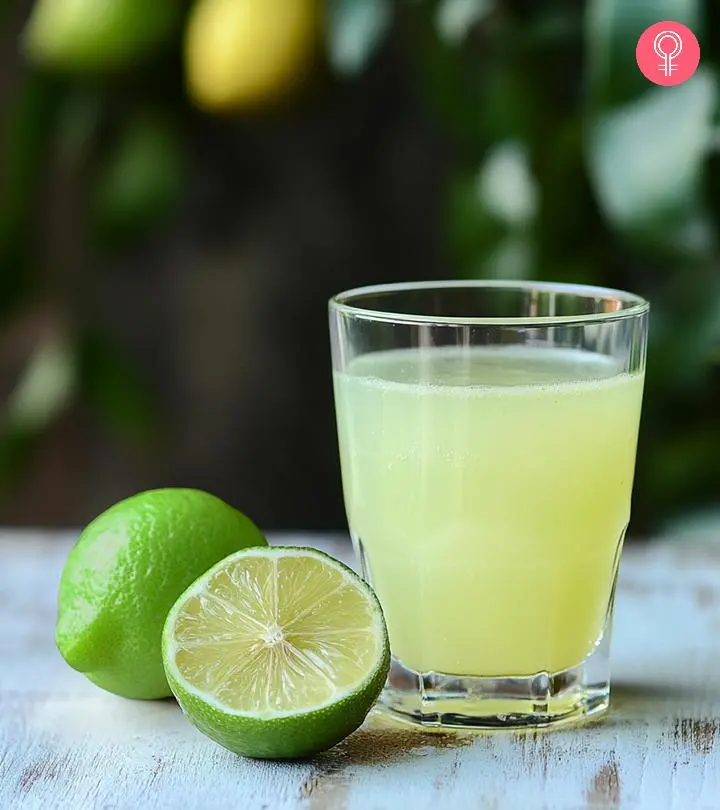
Image: Midjourney/ StyleCraze Design Team
Although lime juice is known for its various health benefits and is one of the best natural and refreshing juices to drink, especially during the hot summer months, it has several side effects that you need to be aware of. This article highlights the side effects of lime juice, its safety, and any potential drug interactions. It also discuses precautions recommended for its safe consumption. Read on to learn more.

 Know The Flip Slide: Lime Juice
Know The Flip Slide: Lime JuiceShort-Term Effects
Acid reflux, nausea, heartburn, and difficulty in swallowing.
Long-Term Effects
May aggravate stomach ulcers, lead to tooth decay, GERD, and even difficulty in absorbing iron.
Drug Interactions
Lime juice may slow down the rate at which some drugs are metabolized by the liver, and it also interacts with photosensitizing drugs.
When To See A Doctor
If you have sudden heartburn due to acid reflux and face gastrointestinal issues, then you may have to visit a doctor.
In This Article
Side Effects Of Lime Juice
Although there are multiple skin, hair, and health benefits of lime, overconsumption can lead to many complications. Get to know about the serious sweet lime juice side effects here:
1. GERD
What?
GERD, also known as ‘gastroesophageal reflux disorder’, is a digestive disorder that affects the ring of muscle between the esophagus and stomach.
How?
GERD is triggered by spicy or acidic foods like lemon juice. Lemon juice can actually irritate the esophageal lining thereby exacerbating GERD (1).
Symptoms?
The symptoms of GERD include nausea, heartburn and vomiting.
 Trivia
Trivia2. Tooth Decay

What?
Natural bacteria flourish in our mouths and form plaque. When we don’t frequently wash our mouth, or we ignore to washing our mouth after drinking or eating something, plaque accumulates and creates cavities in our teeth. Even consumption of something that can be harmful to the enamel can cause tooth decay.
Key Takeaways
- The high acidic content in the lime juice may lead to digestive issues like acid reflux.
- Lime juice may worsen or aggravate ulcers.
- People suffering from kidney ailments should not consume lime juice.
- The acid from the juice may lead to tooth erosion by damaging the enamel leading to tooth decay and over-sensitivity.
Infographic: 6 Serious Side effects Of Lime Water
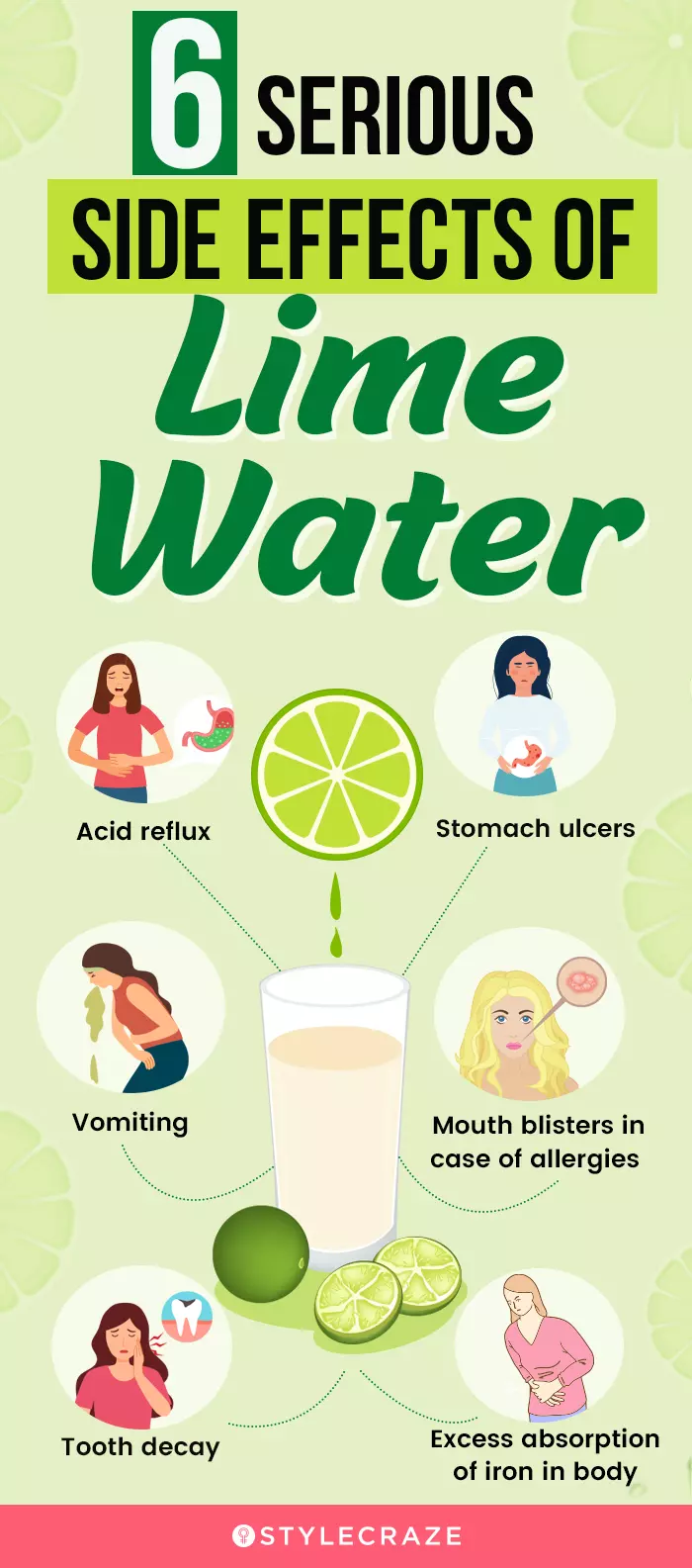
Illustration: StyleCraze Design Team
How?
We know lime juice has a high citric acid content. Its high acidity can lead to the decay of the tooth enamel. If this decay progresses into the dentini A thick, yellow, calcified material or tissue that forms the bulk of a tooth and falls below the enamel. , you might start experiencing sensitivity and pain.
Symptoms?
Other consequences of consuming lime juice (especially canned) in excessive quantities include loss of dental tissue, stained teeth, and in some extreme cases, cavities. One study published in Caries Research examined enamel erosion in deciduous teeth caused by cola- and guaraná-type soft drinks, as well as canned lemon juice. Researchers observed significant damage, including loss of gloss, color changes, and varying degrees of enamel tissue loss. SEM analysis revealed progressive solubilization of enamel prisms, starting with the sheaths and heads and extending to the tails. The extent of erosion increased with longer exposure. All tested products demonstrated a high erosive potential, emphasizing the harmful effects of acidic beverages on deciduous enamel (2).
 Quick Tip
Quick Tip3. Stomach Ulcers

What?
Stomach ulcers, also known as peptic ulcers are extremely painful sores that are found in the stomach lining or small intestine. Stomach ulcers happen when the thick mucus lining inside the stomach gets thinned.
How?
The citric acid in lime can aggravate and worsen the ulcers within the stomach. The increased acid (citric acid + acid produced in your stomach) can irritate the stomach lining and cause acid reflux and discomfort. According to a review published in Medical Clinics of North America, citric acid-containing juices may induce reflux and discomfort in certain individuals. While dietary restrictions for peptic ulcer disease are no longer emphasized, avoiding foods or beverages that exacerbate symptoms, such as citric acid juices, can help manage discomfort in sensitive patients. The focus remains on avoiding extreme gastric acid stimulation and irritation of the gastric mucosa, emphasizing moderation rather than strict dietary elimination (3). This may stop the ulcers from healing properly.
Symptoms?
Symptoms of stomach ulcers include terrible pain within the stomach, bloating, vomiting, and unexpected weight loss (4).
4. Problems During Pregnancy

What?
Pregnancy is an important and yet delicate time for any woman. The intake of lime during pregnancy has certain proven benefits such as easing constipation problems and relieving indigestion. However, excess consumption of line can lead to multiple health problems.
Furthermore, the chances of contracting food-borne illnesses increase during pregnancy. Drinking unpasteurized lime juice might be harmful and can even directly affect your baby (5).
How?
Your immune system is considerably weak during pregnancy. Due to this deficiency, you are more prone to heartburn and food-borne illnesses (like salmonellai Common bacterial infection affecting the intestinal tract caused due to the intake of contaminated food and water. and E.colii A type of bacteria that lives in the lower intestine of humans and animals that can cause intestinal infections. ) That is why you are more prone to heartburn and food-borne illnesses (like E.coli) during the time of pregnancy (6).
Symptoms?
Consuming too much of lime juice during pregnancy can lead to stomach cramps, indigestion, and diarrhea.
5. Hemochromatosis

What?
Hemochromatosis is a disorder that causes the body to absorb excessive iron. This results in the buildup of iron salts and their deposition on the tissues leading to complications. The vitamin C in lime juice, also called ascorbic acid, affects the absorption of iron in the body.
How?
Excessive consumption of vitamin C can increase the amount of iron you absorb from your food. This results in the accumulation of iron inside the body (7).
Symptoms?
Symptoms include fatigue, weakness, joint pain, and heart failure (8). This is a serious side effect of lime juice as it can lead to death at times.
6. Sulfite Disorders
What?
Sulfites are nothing but a group of sulfur-based compounds, which both occur naturally as well as are added to food products as preservatives. Lime juice contains sulfites, which might trigger complications in people with sensitive systems (9).
How?
Sulfites (the ones used as preservatives) are inorganic salts that can help extend the shelf life of foods. These salts can prevent the food from turning brown, and also hinder the growth of bacteria (10). Lime juice contains sulfites which can cause allergic reactions in some people.
Symptoms?
Itchy skin, hives, rashes, stomach cramps, nausea, cough, etc. (11).
7. Might Affect Kidneys

What?
Though lime juice helps treat kidney stones and is good for healthy kidneys, people suffering from kidney ailments should not consume lime juice as it might cause renali A term used in reference to kidney failure or when the kidney stops working due to diabetes or hypertension. damage. If you already suffer from kidney stones or infections, it’s better to avoid lime juice.
How?
Citrus fruits generally contain high potassium levels. This might be bad for those suffering from kidney disease. The diseased kidneys wouldn’t be able to maintain the electrolytei Electrically charged minerals in your blood and other bodily fluids that play a key role in balancing the body’s water and pH levels. balance. This leads to abnormal levels of potassium, sodium and phosphorus (12).
Symptoms?
The symptoms include abnormal heart rhythm, weakness and slow heart rate.
Do all these side effects mean that lime juice is not good for your health and you should stop consuming it? Find out in the next section
Is Lime Juice Good For You?
Lime juice is rich in vitamin C, which protects the body from free radical damage and boosts immunity (13), (14). It is also rich in phytochemicals such as carotenoids, flavonoids, and phenolic acids may inhibit the growth of breast cancer cells (15). Animal studies suggest that lime juice and peel may also increase antioxidant capacity and help prevent atherogenesis, which is the process of plaque formation that leads to coronary artery heart disease (16). Therefore, do not let the side effects stop you from consuming it. Ensure that you consume it in moderation to reap its benefits.
Consuming lime juice in moderation may be beneficial for you. But, there are still some precautionary measures you need to follow to ensure complete safety. Take a look at them in the following section.
Precautions To Prevent The Side Effects Of Lime Juice
Here are some precautions that can help you prevent the risks associated with lime juice:
- Dilute the juice with water to reduce its acidity and use a straw to drink lime juice to minimize contact with your teeth.
- Always rinse your mouth after consuming it. This will prevent the juice from sensitizing your teeth.
- If you have a sensitive stomach, consider consuming lime juice after meals, rather than on an empty stomach.
- If you are on any medication or are pregnant, consult your doctor before consuming lime juice to avoid risks.
Antioxidants abound in lime juice, making it a refreshing drink to rehydrate when you’re tired. However, overconsumption can lead to a number of problems. Lemon water side effects may range from an increased risk of developing digestive disorders like GERD to dental problems. It also puts you at high risk for stomach ulcers or kidney disorders. It may interfere with the absorption of iron leading to hemochromatosis. While pregnant, excessive lime juice consumption may cause health problems. Avoid such complications by limiting your intake or abstaining from it altogether.
Frequently Asked Questions
Is it OK to drink straight lime juice?
Jesse Feder, Clinical Dietitian, says, “It is generally safe to drink lime juice straight. However, it can be high in sugar and cause spikes in your blood glucose levels. It is also acidic, which can harm the enamel of your teeth, as well as potentially irritate your stomach.”
Can lime cause yeast infections?
According to Jesse, “Anecdotally, drinking lime juice has been shown to help prevent yeast infections. However, there is limited scientific backing for this. Additionally, directly applying lime juice to the pubic area may cause a yeast infection due to the sugar content.”
Does lime lower blood pressure?
Jesse Feder says, “Limes are a great source of potassium and magnesium, which can help lower your blood pressure levels.”
Is it OK to drink lime water every day?
Yes. Lime juice is packed with vitamin C and antioxidants that help support good health and may prevent dehydration during summer.
How much lime juice should I drink per day?
Eva De Angelis, Dietitian Nutritionist, says, “To be safe and avoid any of the aforementioned side effects, limit yourself to drinking no more than the juice of three limes per day.”
Which is healthier: lemon or lime juice?
Lemon juice. Vitamin C is slightly higher in lemons compared to limes. Lemons are also richer in potassium, folate, and vitamin B6 (13), (17).
Illustration: Serious Side Effects Of Lime Juice
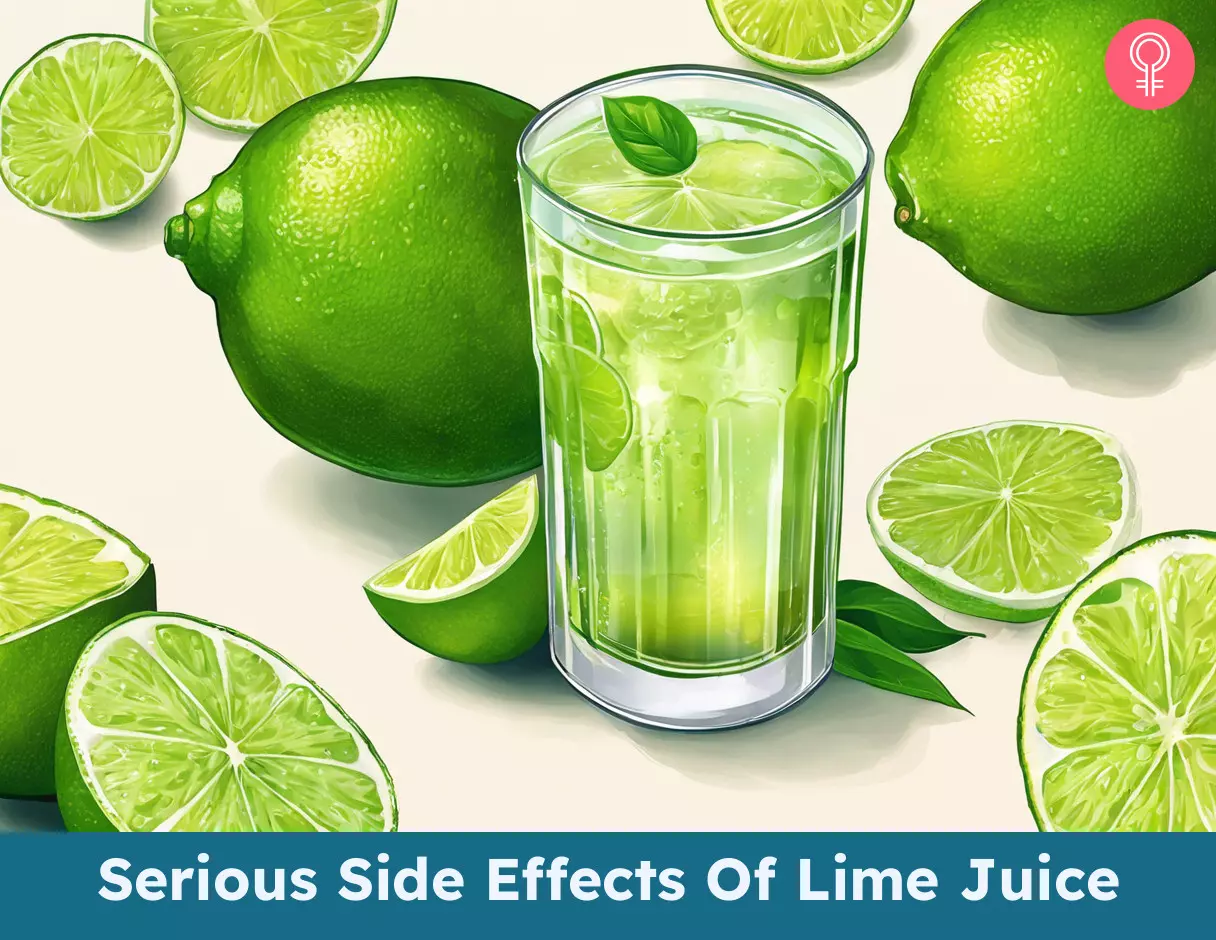
Image: Stable Diffusion/StyleCraze Design Team
Discover the surprising side of lime juice! Uncover the potentially serious effects that this zesty elixir can have on your health. Watch this video and make informed choices for your well-being.
Read full bio of Janelle Bigelman
- Eva De Angelis is a Dietitian Nutrionist from Argentina. She specializes in food and nutrition education, and healthy cooking. She has a Bachelor’s degree in Human Nutrition and Dietetics from ISalud University, a postgraduate certificate in Nutrition, Gastronomy, and Health, a culinary diploma, and an intermediate-level technical degree in Food Science.
 Eva De Angelis is a Dietitian Nutrionist from Argentina. She specializes in food and nutrition education, and healthy cooking. She has a Bachelor’s degree in Human Nutrition and Dietetics from ISalud University, a postgraduate certificate in Nutrition, Gastronomy, and Health, a culinary diploma, and an intermediate-level technical degree in Food Science.
Eva De Angelis is a Dietitian Nutrionist from Argentina. She specializes in food and nutrition education, and healthy cooking. She has a Bachelor’s degree in Human Nutrition and Dietetics from ISalud University, a postgraduate certificate in Nutrition, Gastronomy, and Health, a culinary diploma, and an intermediate-level technical degree in Food Science. - Jesse Feder, RDN/LDN, is a Clinical Dietitian at the Memorial Regional Hospital. He is also a certified by the American College of Sports Medicine as a personal trainer (ACSM-CPT) and the National Strength and Conditioning Association as a Certified Strength and Conditioning Specialist (NSCA-CSCS).
 Jesse Feder, RDN/LDN, is a Clinical Dietitian at the Memorial Regional Hospital. He is also a certified by the American College of Sports Medicine as a personal trainer (ACSM-CPT) and the National Strength and Conditioning Association as a Certified Strength and Conditioning Specialist (NSCA-CSCS).
Jesse Feder, RDN/LDN, is a Clinical Dietitian at the Memorial Regional Hospital. He is also a certified by the American College of Sports Medicine as a personal trainer (ACSM-CPT) and the National Strength and Conditioning Association as a Certified Strength and Conditioning Specialist (NSCA-CSCS).
Read full bio of Tanya Choudhary
Read full bio of Ravi Teja Tadimalla
Read full bio of Moksha Gandhi





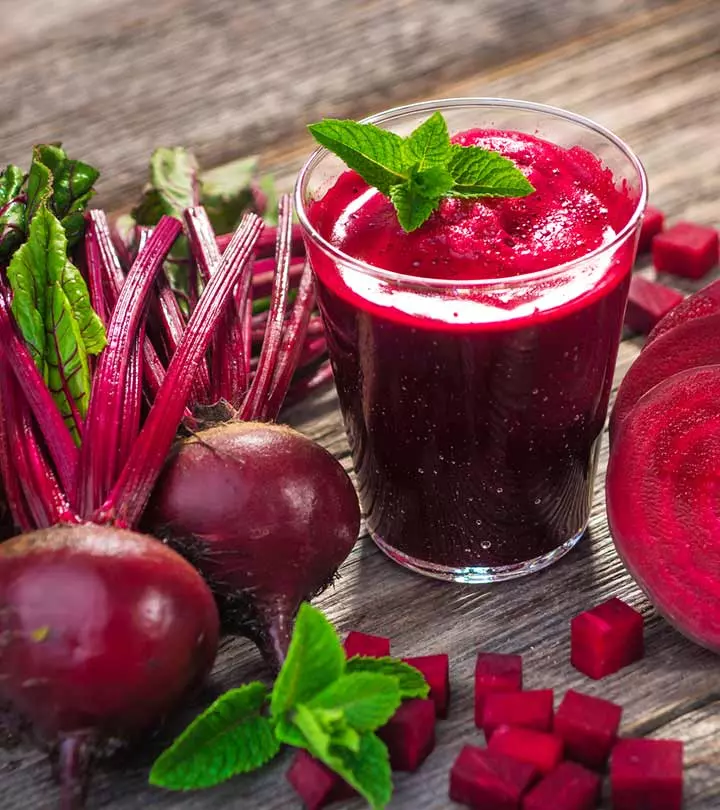


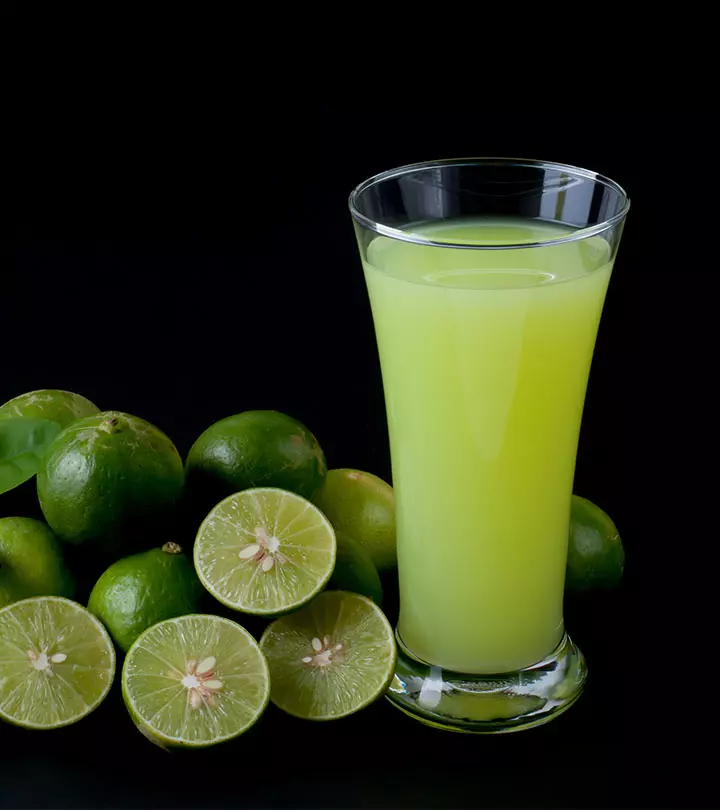
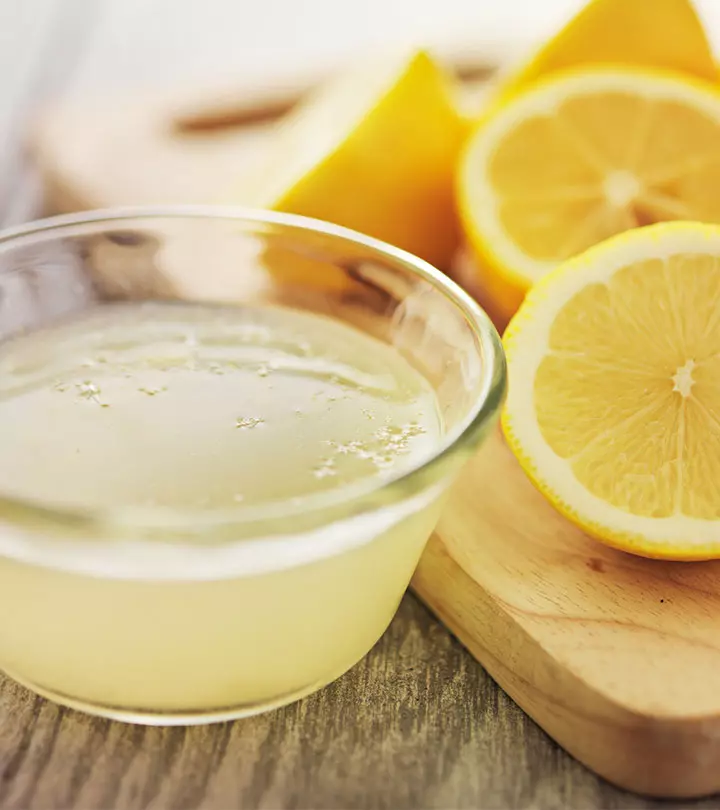

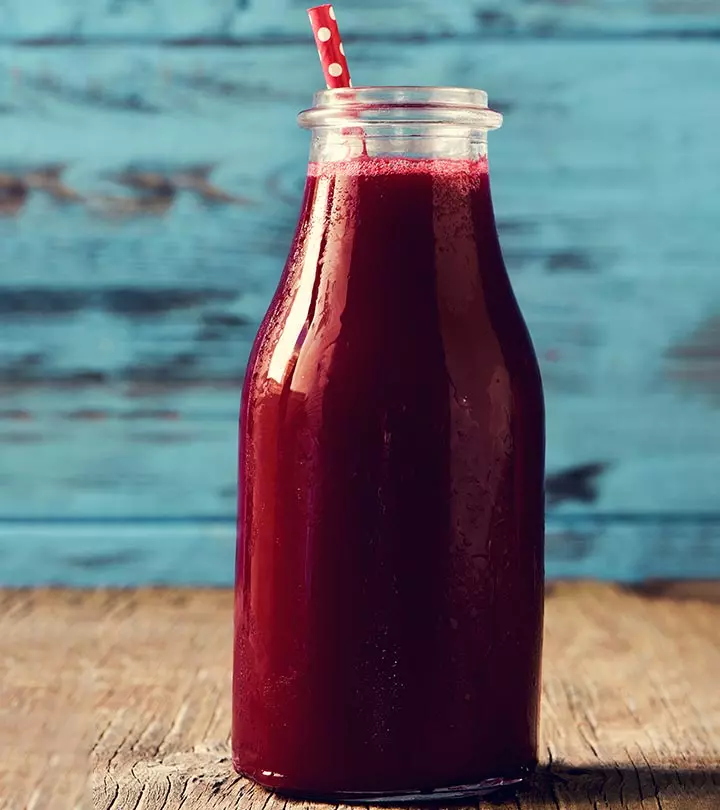

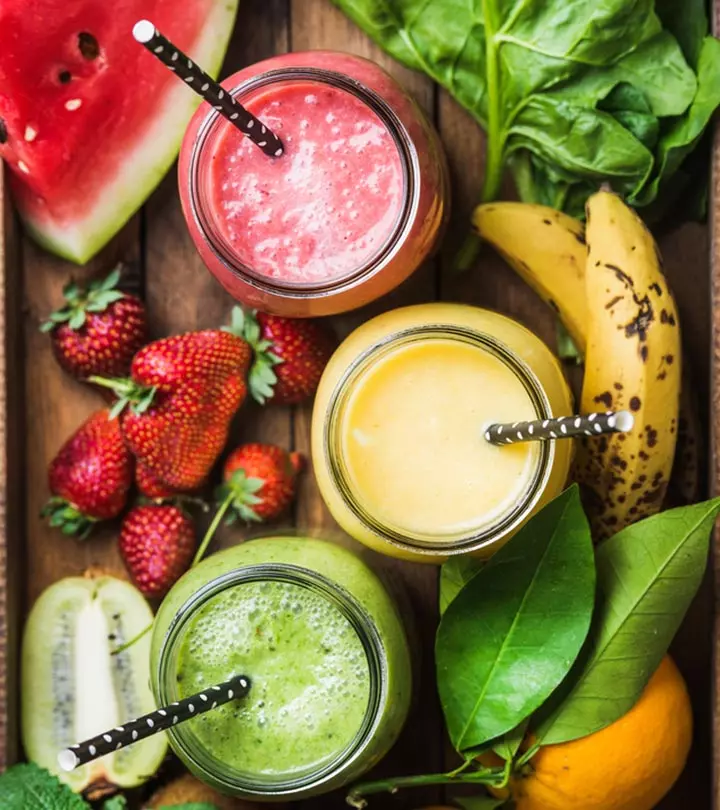

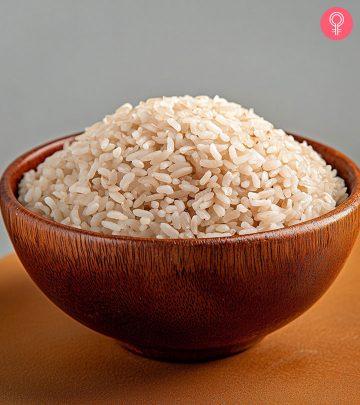








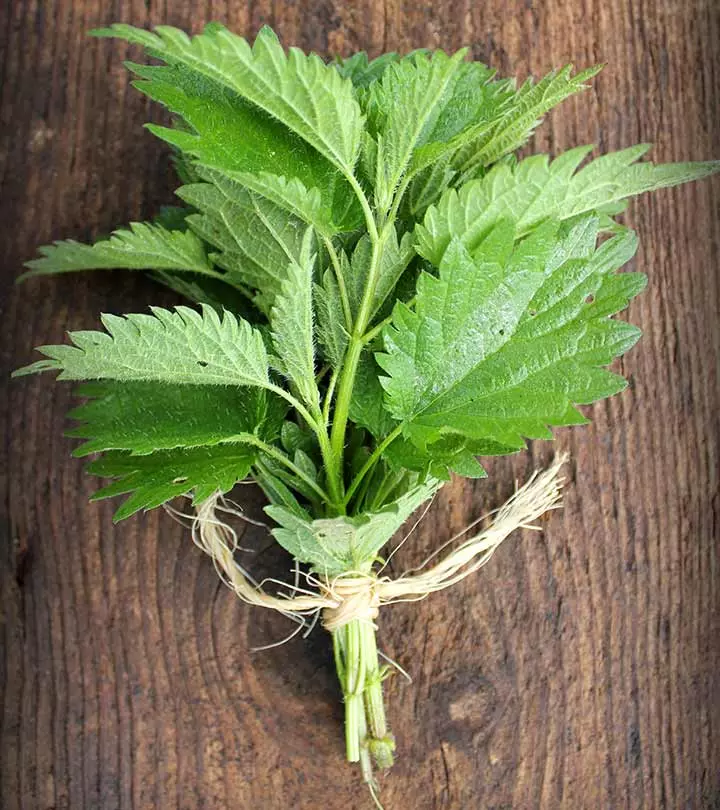
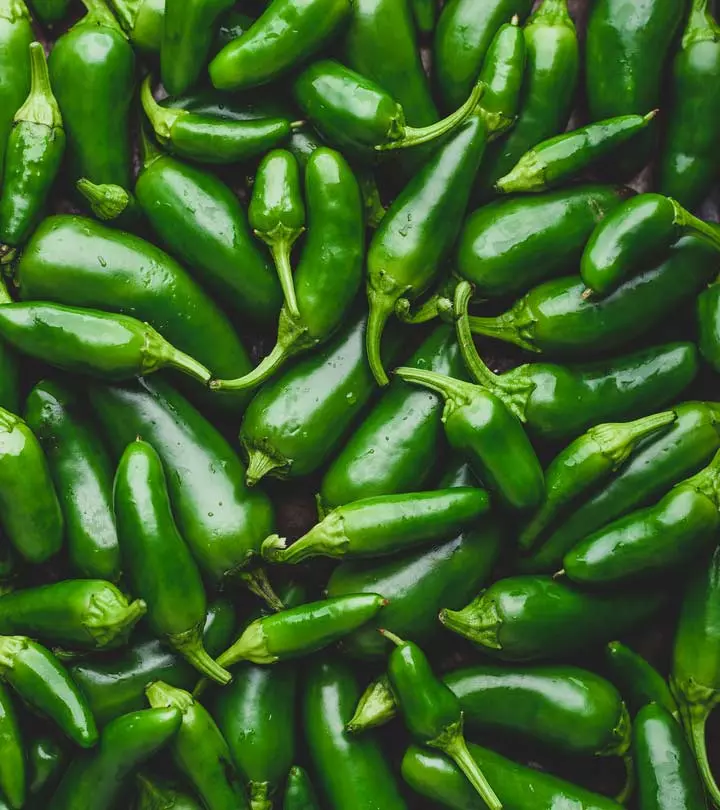
Community Experiences
Join the conversation and become a part of our empowering community! Share your stories, experiences, and insights to connect with other beauty, lifestyle, and health enthusiasts.